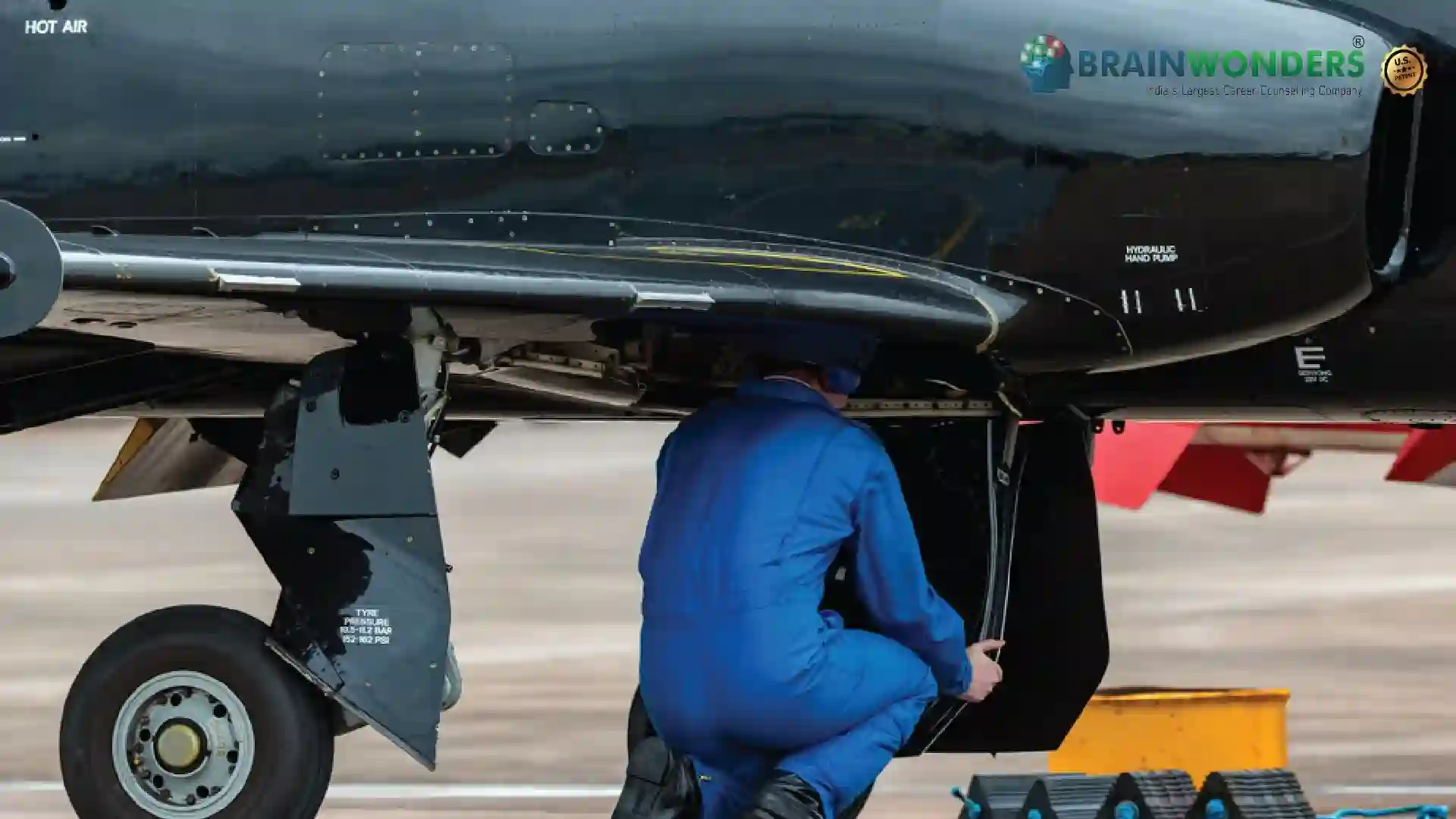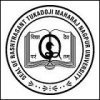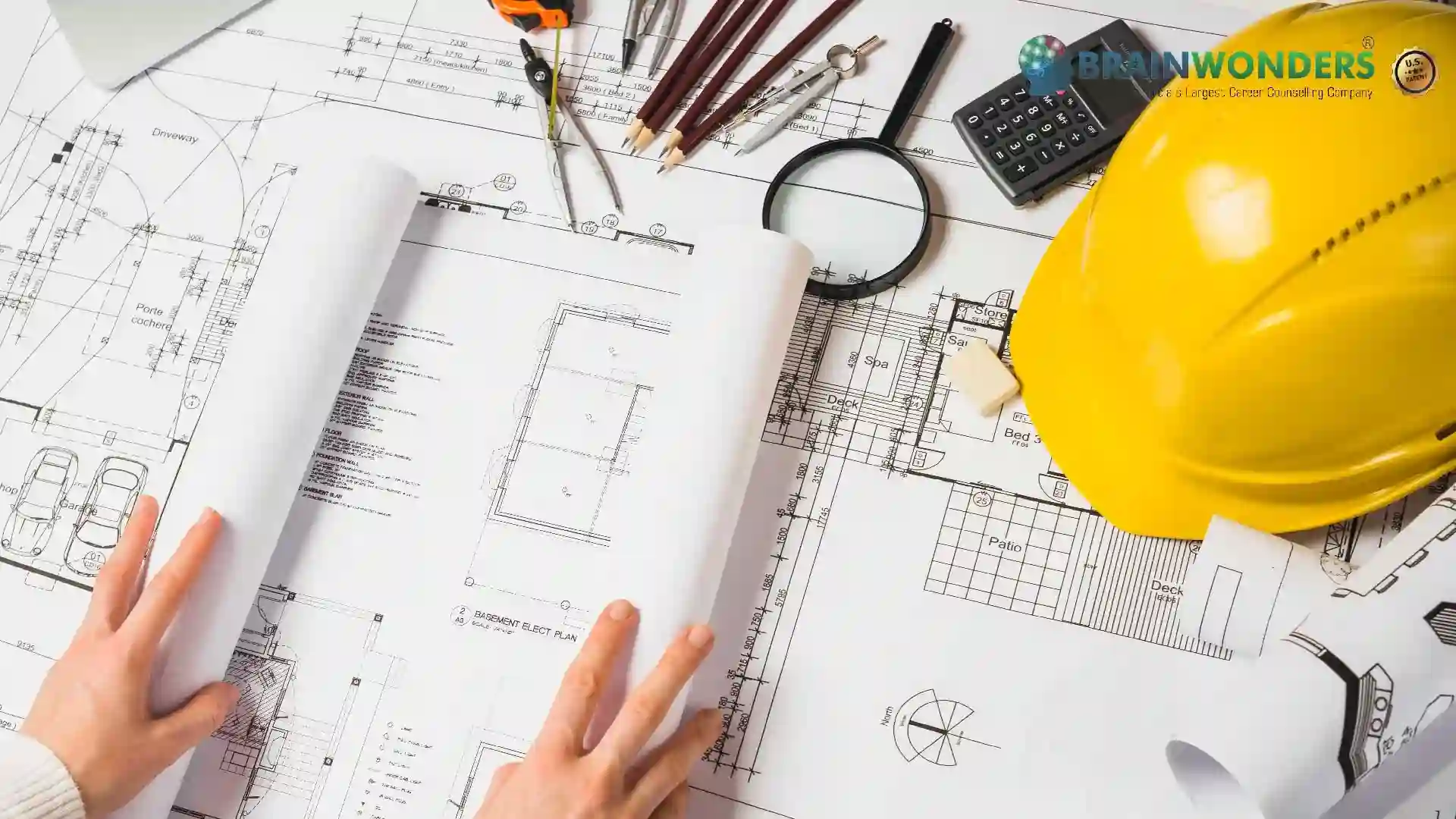How to become an Aeronautical Engineer
Overview, Courses, Exam, Colleges, Pathways, Salary

Overview
Who is Aeronautical Engineer ?
Aeronautical Engineers are professionals who design and build air flight-capable machines that function within the earth’s atmosphere. They are involved in the research, development, testing, maintenance and repair of these machines, their components, and associated systems. This includes civilian aircraft, missile systems, drones and military weapon systems and defence aircraft as well. Along with professionals from varied technical disciplines, they work to construct safe, functional, energy-efficient aerial vehicles. They deal with the technology and development of air vessels used for aviation, defence and exploration purposes.
They can choose to specialise in a number of areas such as instrumentation and communication, manufacturing, maintenance, structural design and engineering, aerodynamics, aerospace propulsion, flight mechanics and control systems. They design air vehicles, create simulations and prototypes for testing the designs, and further make modifications, assess performance, and conduct maintenance and repairs procedures.
An Aeronautical Engineer`s job is a combination of art and science, and it entails studying, designing, building, manufacturing, and testing aircraft and entire flying vehicles within the Earth`s atmosphere. Aeronautical engineers can work in government organisations as Car Designers, Flight Mechanics Engineers, Graduate Engineer Trainees, Assistant Aircraft Engineers, Aircraft Production Managers, Thermal Design Engineers, and Air Safety Officers. It is one of the highest-paying and most prestigious engineering job profiles.
India is one of the countries with brilliant and hardworking youth who can propel the aviation industry forward. A strong academic foundation and skills in aeronautical engineering lead to a rewarding career and a high salary. Even opportunities in Aeronautical Engineering abroad are excellent for students who combine their skill with innovation. Airbus and Boeing are two well-known multinational aircraft manufacturing companies based in other countries. The European multinational corporation is Airbus, and the American multinational corporation is Boeing. For a skilled Aeronautical Engineer, salary packages in other countries are significantly higher than in India.
Typical day at work
What does Aeronautical Engineer do?
- Direct the designing and manufacturing process of the product and develop the design methods
- Ensure that the project proposal is technically and economically feasible
- Ensure that safety and regulatory standards are being met by the aircraft design using test flights or flight programmes
- Prepare detailed and accurate documents outlining the instructions for maintenance and repair of the aircraft
- Design and develop the engines and equipment to be used for the aircraft
- Devise designs for building aircraft and the test procedures to be used for evaluating its performance
- Supervise the construction of the air vehicle to ensure it is as per the design requirements
- Evaluate the performance of the aircraft, its components and systems in terms of its stability and efficiency of function
- Make necessary modifications and re-evaluate the performance of the product
- Conduct maintenance checks of the aircraft’s systems periodically
- Collaborate with the management and the clients for determining budgets, timelines, and project specifications
- Pitch business ideas for future developments
Abilities and Aptitude needed
What are the skills, abilities & aptitude needed to become Aeronautical Engineer?
Mathematical and technical aptitude is crucial for one to function as an aeronautical engineer. Aeronautical engineers must be equipped with good leadership and supervisory skills as well as the ability to work collaboratively as a part of a team. They should be highly analytical and detail-oriented with excellent problem-solving skills. Their communication skills are vital in order to relay the highly technical information in simple, understandable terms to the managers, suppliers, and buyers as well as to discuss budgets and project specifications and negotiate deals. They should be skilled at delivering outstanding output under time pressure which requires excellent time management and project management skills.
Commercial awareness, as well as that of the aircraft safety regulations and standards, is important for these professionals to ensure the economic feasibility, safety and functionality of their projects. Their critical thinking skills are vital to envision and create designs, create simulations, and make necessary modifications to the design till it meets the project requirements and regulatory standards.
1. Aeronautical Engineers Need Technical Skills.
Aeronautical graduates should have a minimum level of technical knowledge in their fields. They should be well-versed in the following technical subjects in order to be hired by any company.
- Engineering Illustrations
- Structures of Aircraft
- Flight Dynamics
- Elements of Aeroelasticity and Vibrations
- Technology for Manufacturing
- Materials and Structures Made of Composites
- Thermodynamics in Aero Engineering
- Materials and Processes Used in Aircraft
- Machinery and Fluid Mechanics
- Airframe and Aero Engine
- Mechanics of Solids
- Elements of Aeronautics in an Aircraft Design Project
- Computer-Aided Simulation (CAS)
- Material Tensile Strength
- Quality Control
2. REASONING, ANALYTIC, AND PROBLEM-SOLVING ABILITIES
It is the ability to analyse data, apply logic to identify patterns, and arrive at the best solution in a timely and efficient manner. To get any job, you should be able to perform the following tasks:
- Logical Venn-diagram
- Seating arrangements
- Coding and decoding series
- Mathematical operations
- Puzzle solving, and so on.
Hiring an employee requires a person who uses logical steps and judgement to understand the problem before implementing a solution. The more you solve, the easier it will be to understand.
3. INTERPERSONAL ABILITIES
Not only should they have the aforementioned skills, but they should also have good interpersonal skills in order to be placed in any reputable company. • Critical thinking abilities
- Presentation abilities
- Communication abilities, listening abilities, leadership abilities, and the ability to solve problems quickly
- Teamwork Ability to work under pressure for long periods of time and meet deadlines
- Analytical and mathematical abilities that are exceptional
- Expertise in the industry
- Technical knowledge and a strong awareness of safety issues
Salary
Salary for Aeronautical Engineer?
The salary of an "Aeronautical Engineer" career can vary based on factors such as experience, qualifications, the size of the employer, and the country or region of employment.
- Minimum Monthly Salary: The minimum salary can be from INR 30,000 to INR 50,000.
- Maximum Monthly Salary: The maximum salary can be from INR 1,50,000 to INR 3,00,000 or more.
- Annual Salary: The annual salary can be from INR 3,60,000 to INR 36,00,000 or more.
- Highest Paying Job and Scope: Aeronautical Engineers can be the role of Chief Engineers or Senior Aerospace Engineers. Scope in Aeronautical Engineering is promising, with opportunities in various areas such as aircraft design, structural analysis, propulsion systems, avionics, research and development, and aerospace manufacturing.
Pathways
How to become an Aeronautical Engineer?
Entrance Exam
Entrance Exam for Aeronautical Engineer ?
In order to enrol into a Bachelor’s program at an esteemed university, aspirants are expected to clear the JEE main and subsequently, the JEE Advance exam which makes the aspirant eligible to apply at any university in India. It is a challenging exam to crack that requires hard work as well as rigorous and consistent preparation. Some states have their own entrance exams that are admissible in their respective universities. Many educational institutes conduct their own entrance tests.
Courses
Which course I can pursue?
Best Colleges
Which are the best colleges to attend to become an Aeronautical Engineer?
Industries
Which Industries are open for Aeronautical Engineer?
Depending on one’s educational background, experience, and skillsets, aspirants may apply for the following aeronautical engineering jobs:
- Graduate Engineer Trainees.
- Thermal Design Engineer
- Aircraft Production Manager
- Aerospace Design Checker
- Flight Engineers
- Consultants
- Assistant Technical Officers
- Aeronautical Mechanical Engineers
- Aeronautical Electronic Engineers
internship
Are there internships available for Aeronautical Engineer?
In any given field, along with theoretical knowledge, it is always an added advantage to get an on-ground experience that enhances the aspirant’s understanding of the domain. Therefore, it is highly encouraged to take up an internship and gain exposure to the latest tools, methodologies and technology and become fluent with industrial standards. Aspirants may seek internships while studying and even after graduation. Many education boards have made it mandatory to take up at least one internship during their degree program better to prepare the candidates for competence in the real world.
Career outlook
What does the future look like for Aeronautical Engineer?
Aeronautical engineers can be employed in a range of private and public sector industries including aircraft manufacturing companies, aviation organizations, airline operators, research and development organizations, consultancies as well as the defence forces of the country. They earn handsome compensations for their services and can advance to the position of a senior aeronautical engineer or principal engineer with ample experience in the field. Some of the other job profiles they can occupy by specialization include flight engineer, aeronautical mechanical engineer, and aeronautical electronic engineer. It is typically an office-based job but they shall be required to work in aircraft workshops, hangars, or laboratories as well.
Occasional travel can be expected in order to liaise with the clients, materials suppliers, and manufacturers. With the rapid technological advancements in recent times, an aerospace engineer needs to keep updated with the new and emerging technological developments in their field. A career in aerospace engineering can lead to a variety of opportunities. Thermodynamics, propulsion, aerodynamics, and celestial mechanics are all possible specialisations. If someone has a particular interest in an aerospace product, such as rockets, missiles, helicopters, or military jets, he or she may choose to specialise in that product as well. According to a recent report, employment of aerospace engineers is expected to grow by 6% between 2016 and 2026. Aircraft are being redesigned to emit less noise and use less fuel, which will necessitate additional research and development.
Aeronautical Engineers are in high demand on a national and international scale. They are required in both private and public airlines, as well as aircraft manufacturing facilities. These engineers are initially hired as graduate engineer trainees or Junior Engineers. Aeronautical Engineers are employed in countries such as the United States, the United Kingdom, France, and Germany. A significant number of Indian Aeronautical engineers work at NASA.







